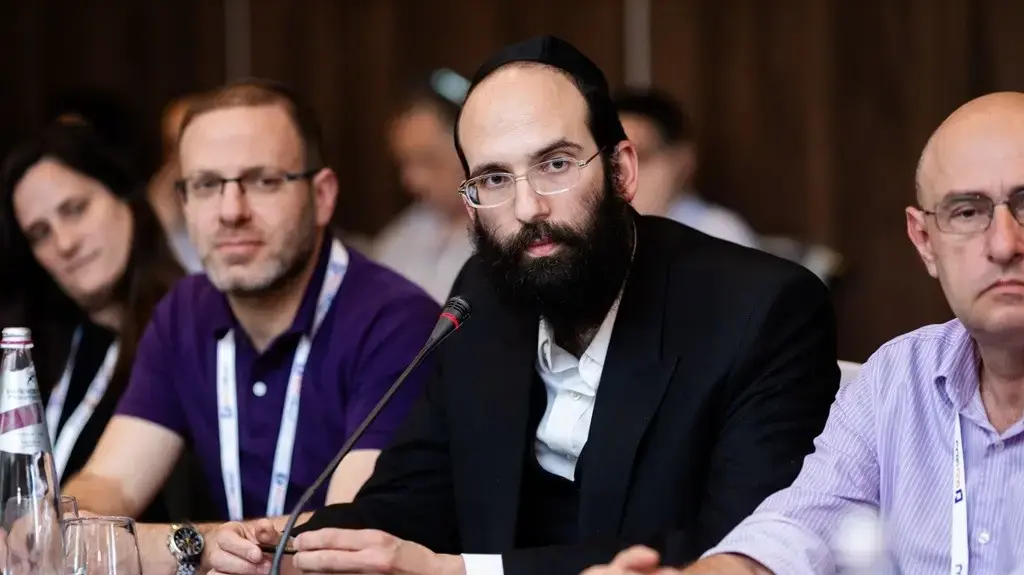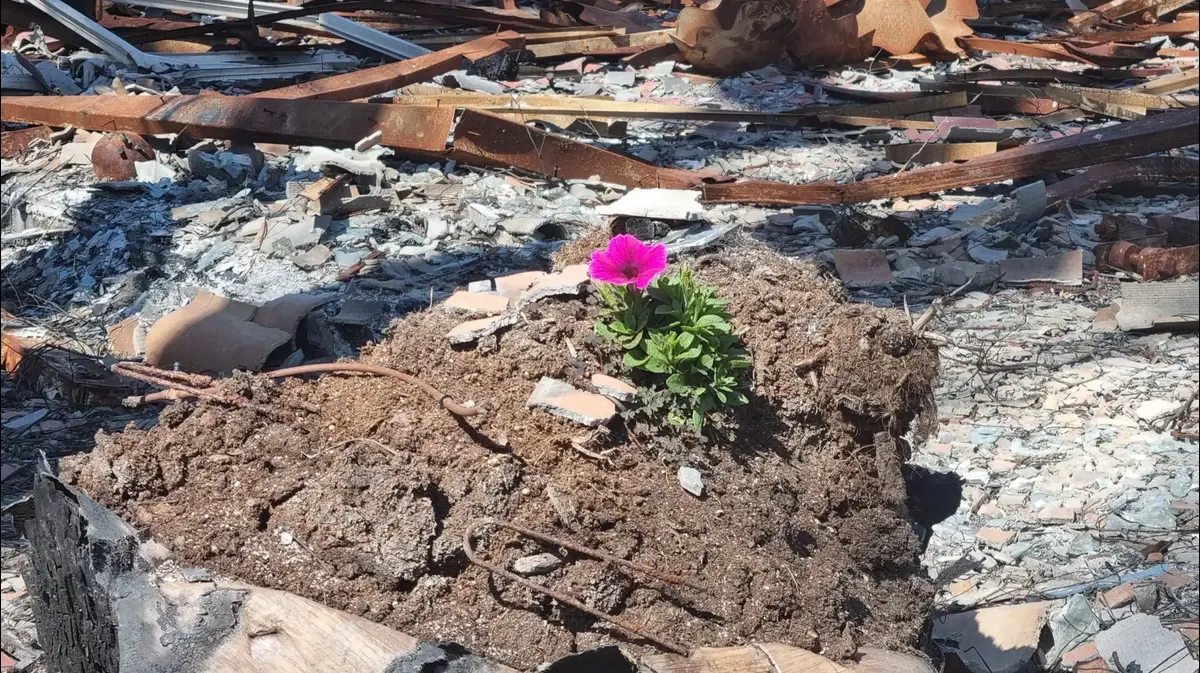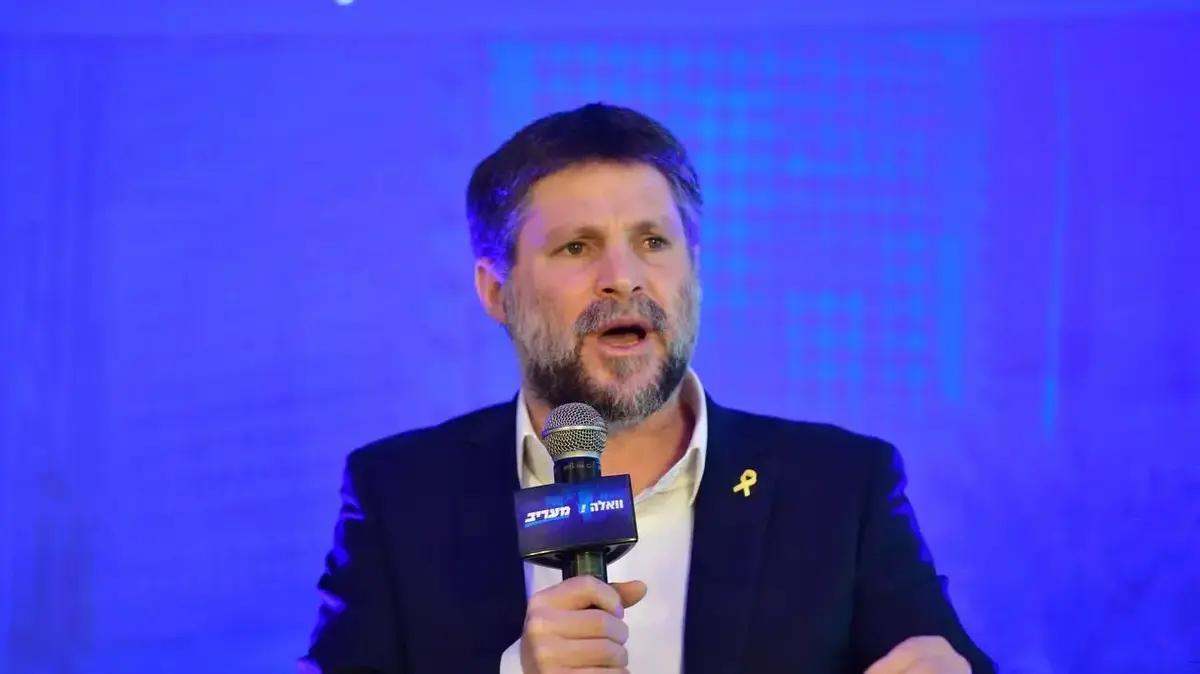When we hear about foreign workers, we usually don't think of senior managers.
But there are also some: what do senior officials who came here for short periods think about Israel? (Photo: ShutterStock)
Foreign workers, not what you thought: they came here from China and France, Bulgaria and England, and found here a completely different country than the one they only knew from the news headlines.
The State of Israel may be our home, but it is an employment destination for quite a few executives and employees who relocate for a certain period.
At least according to those with whom we spoke, even if the transition begins with a certain apprehension, there is often enthusiasm afterwards, to the point that there are even those who do not want to leave.
Just before Independence Day, we met for a conversation with foreign CEOs of international companies who came to work in Israel, but, at least some of them, were surprised to find much more than a career with us.
Christian Tashev, CEO of Royal Kenin Israel (Photo: Ran Bergman)
Kristian Tashev, 41, CEO of Royal Canin in Israel
, the French manufacturer of the premium dog and cat nutrition brand, arrived in Israel two years ago from Bulgaria, after finishing his position as the company's operations manager in Bulgaria, Croatia and Slovenia. "I got the opportunity to come work and live in Israel during The corona virus," he says with his little Hebrew. "I didn't have the opportunity to come visit, and I had never been to Israel before.
It took me three days to decide that I really wanted this role."
Was it difficult at first?
"Not particularly.
I came from a very different country, but with similar values of direct communication and openness.
Every person I met in Israel, starting with the Royal Kenin team and everyone else, supported me and made my integration quick and easy."
What is the biggest challenge here for you?
"The language is definitely a big challenge. I couldn't read or understand the parking signs, so I had to send pictures to my colleagues to understand where I could or couldn't park. The opportunity to participate in traditional weddings, holiday events and even funerals helped me a lot to feel what it is to be Israeli, as well as The series 'Stisel' that aired on Netflix, which helped me understand the religious sector better."
The people, nature, food and Jerusalem are magical in Tashev's eyes.
He likes the waste of food less.
"This creates large amounts of garbage without many opportunities for recycling. I think there is a certain degree of awareness of sustainability in Israel, but there is still a long way to go."
Special offer for the holidays
This is how you will prevent a heart-felt event from disrupting the happy holiday season
Served on behalf of Shachel
Joffrey Chartier, Global CEO at SABON (Photo: PR)
Joffrey Chartier, 49, Global CEO at SABON
, was born in France, but has lived since 2001 around the world, including in the Emirates, Mexico, Dubai, and Hong Kong. He came to Israel three years ago and he also does not speak Hebrew
. , I lived in Dubai.
At the same time, a senior recruiter called me to tell me about the SABON brand.
It was a brand that I had been looking at for a while, since I was interested in bringing it to the Middle East, within the framework of the previous company I worked for.
I arrived in Israel in the middle of the Corona crisis, I immediately connected with my team and my new role, as well as with Israel, a country I have known and loved since childhood.
The main difference compared to Dubai is that Israel is not really a country of expatriates, unlike the United Arab Emirates, where they make up about 90% of the population."
What does this mean?
"One of the other things is the depth of the conversations you can have with people you barely know. While the world is preoccupied with the news, people here are discussing life, values and the future. This country has more depth than any place I've lived in before, and thanks to Israeli audacity, you get to know the community very quickly, In a very authentic and profound way. On the other hand, the thing I like least here is the banking system, which is very unfriendly to foreigners."
You have been traveling around the world for more than a decade.
Is the family moving with you?
"My family is not here with me, since my children are in their transition year from school. Of course, I try to meet them once a month, for a whole week, and they try to visit Israel during the holidays. They definitely love Israel."
do you already have friends
"I made many friends, some French, some from Israel. There were some I knew even before I arrived. In addition, my grandmother's sister has lived in Israel since 1947. What I tell my friends in the world is how much they miss that they don't know Israel like those who were lucky enough to come and experience it On their own. I try to invite them to Israel so that I can share with them the beauty of the country and teach them what Israel really is."
What will you take with you from the business culture here?
"I am fascinated by the way things are handled here. While the corporate world strives to revive the agility that has been lost in the last 20 years in business, Israel has an innate business culture to be agile, driven and oriented towards quick wins. This is definitely due to the general Israeli culture which is very flexible, resourceful, Creative and solves problems, alongside values of generosity, warmth, authenticity and joy."
Cosima Watkins, Cathay Pacific (Photo: PR)
Women also get to know the country as part of relocation.
One of them is
Cosima Watkins, 26 years old, operations manager of the Cathay Pacific airline in Israel
, who arrived from Hong Kong seven months ago.
"I was given the opportunity to work in another country with Cathay Pacific and I asked to be stationed in Israel," she reveals.
"I had never visited Israel before I came here, so it was a wonderful opportunity to live and work in a country and region that are so new to me."
are you adventurous
"Moving to a new country is never easy, but I found that Israel and Hong Kong have some similarities. Both share a strong multicultural spirit and attract people from all over the world, which makes both places very special. Although culturally, Hong Kong and Israel are quite different. The Israelis Very expressive, bold, and sometimes can be quite direct. Although I had to adapt to the culture, there is something to be learned from this approach, and it might be better - just get straight to the point!"
What do you like the most?
"The food. Without a doubt. The food in Israel is amazing!"
What impressed you about the work culture here?
"The close relationship with people at work that feels like family. This is definitely something I want to bring with me to the next position and encourage in future workplaces in different countries, because I feel that close relationships motivate the team to work well together and go above and beyond to help and support each other."
Korin Gabbay, manager of the marketing content team at WalkMe (Photo: WalkMe)
Corinne Gabai, manager of the marketing content team at WalkMe
and a believer in the company's marketing strategy for a year, came to Israel following love.
"I met my Israeli husband while we were both traveling in Cambodia. I lived and studied in China at the time. We lived a bit in China and Turkey before he convinced me to come live with him in Israel."
How was the arrival in Israel?
"I'm originally from northern Minnesota, so Israel is the most different place from where I grew up. I'm used to long, cold, snowy winters. I think Israelis take the weather here for granted."
We consider ourselves to be working according to the American model.
This is true?
"Americans are very "passive-aggressive". They tend to shy away from confrontations and arguments, the complete opposite of Israelis. I will never forget how my husband and my uncle, who is originally from Boston, got into a heated argument. Soon, my father and my aunt just ran out to the balcony, where there was a lot of atmosphere More calm.
In addition, Israelis supposedly "respect the rules", but they do not always apply to them.
Minnesotans, on the other hand, love laws.
I remember when I ran the Tel Aviv Half Marathon in my first year in Israel.
I was in Allenby opposite the market, there were riders going both ways, and a woman who was in the area stormed both lanes, completely ignoring the river of people running.
People got mad and shouted but she didn't care.
She just wanted to get to the market.
In general, Israel is a warm and welcoming country."
Adam Bar, Senior Data Analyst at Propedo (Photo: Maxim Dickstein)
Adam Bar, 30, Senior Data Analyst at the prop-tech company Propedo, which
develops artificial intelligence tools for predicting real estate prices, came to Israel from Manchester, England, five years ago. "I made this decision out of the desire to experience a different lifestyle and culture, and to challenge myself in different aspects of life.
I was attracted to Israel's warmth, energy and diversity, and hoped to find new opportunities for personal and professional growth.
I wanted to "spice up" my love life and see if I could find my wife here."
And did you find it?
"Let's just say I have no plans to leave Israel because I hope one day I can start my own family here."
How did it all begin?
"I landed in Israel in 2018 and I had to deal with quite a few difficulties and surprises.
But as with everything in life, as time went on, things became easier and more enjoyable.
I learned to speak Hebrew better, and I made some good friends who helped me adapt.
Today I live in Givatayim which reminds me a bit of my hometown in Manchester, a city with a diverse community of young families and professional people.
But there is also a big difference between Manchester and Givatayim, here I can get on a bus and be at the beach in 20 minutes, while in Manchester I had to endure endless rain and cold weather.
I like living near Tel Aviv, there is always something fun to do.
I like hanging out with my friends, going to parties or just walking along the boardwalk."
Have you given up your English habits?
"Share more with me.
I can't start the day without a quality tea infusion with milk, of course and I'm a die-hard Manchester United fan to this day.
The hardest part is trying to speak Hebrew with my accent.
It always cracks people up and they want to know where I'm from and how I got here.
But there is no doubt that it took me time to get used to the work environment and the people I work with.
In England, everything is more formal, from the structure of society to the way you dress for work every day.
From my experience in Israel the atmosphere is lighter.
For example, I don't have to wear a full suit with a blazer and tie, and Israel is characterized by less micro-management.
Of course, even in England I used to go to the pub and drink after work every weekend.
This does not happen in Israel."
Has there been a change in you?
"I also learned quite a bit about myself.
Five years ago I was a typical humble, polite and rather reserved Brit.
I would stand in line patiently, saying sorry when someone bumped into me.
When I moved to Israel things started to change.
I realized that if I want things to happen I will have to adapt to a culture that is loud, direct and very expressive.
I learned to bargain, to complain loudly, to honk in traffic jams and join the lively debates in the office, bars and at the dinner table.
I became more assertive and yes.
It was a shock to me at first, but now I love it.
Mi-Ho Chiang, CEO of the Gulf Port in Haifa (Photo: Gulf Port)
Mi-Ho Chiang, CEO of the Gulf Port in Haifa
, the first private port in Israel, 52 years old, has worked for over 30 years at SIPG Ports Company, which operates the largest port in the world. He was born and raised in Shanghai, and has been in Israel for over five years. "
Israel It is a paradise for people like me," he declares. "Israel has a glorious history and I love history and especially archaeology.
When I arrived in Israel, I hurried to visit the Jordan River, in order to study the connection of the railways of Jordan and Israel.
I imagined that the Jordan River, which I read about in books, would be similar to the rivers in China.
I was very surprised to find that there is not much room for comparison.
But there is no doubt that this is an important river with a lot of history and the project of a train to the Gulf countries is an important project."
What is the most interesting thing you learned here?
"What is a "big head".
Israelis do not only look at their role but at everything that surrounds them and are not afraid to take responsibility and make suggestions."
"We have Jews, Christians, Muslims, Druze and, of course, some Chinese working at the Gulf Port. I really connect with this cultural diversity and the respect that all of us at the Gulf Port share for the culture of others. I am very proud of this human mosaic. I was less connected to the food."
Chiang's family stayed in China, which became a difficult challenge during the Corona period so it was not possible to fly and meet.
"Recently the restrictions were lifted in China and I returned for a long vacation at home."
What will you take with you back to China?
"The initiative, the creativity and the big head. The mutual guarantee, the friendship of the Israelis and the respect for tradition and history that fascinate me. You have a very special country and you are justifiably proud of it."
Of money
Tags
CEOs
Administrators
relocation















